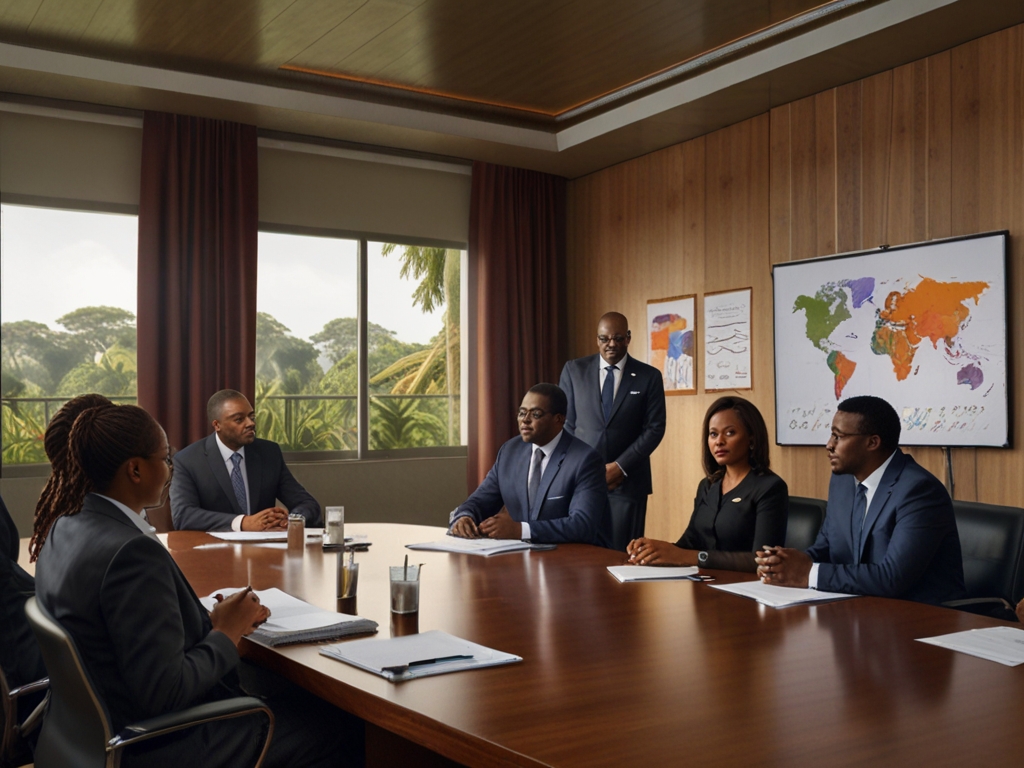Today, we explore three principles for culturally intelligent decision-making, empowering you to lead effectively in Douala or global arenas as we build toward Week 5. In Cameroon’s vibrant mosaic—from the communal markets of Bamenda to the innovative startups of Limbe—decisions thrive on cultural wisdom. At Lead from the Heart, we’re deepening Week 4 of May’s theme, Wisdom – Leading with Cultural Intelligence, with Kwame Nkrumah’s insight: “Culture is not an ornament; it is the foundation of all human values.” .
Principle 1: Ground Decisions in Cultural Context.
In Cameroon, decisions resonate when they reflect values like respect, seen in Foumban’s deference to elders. Culturally intelligent leaders assess the cultural landscape before acting. For example, a Yaoundé manager might consult team members, honouring communal norms, before rolling out a policy. Globally, this aligns with stakeholder analysis in decision models. Apply this: map one decision’s cultural impacts (e.g., “Will this schedule respect ‘African time’?”). Our Strategic Offsite retreat uses workshops to refine this skill.
Principle 2: Embrace Diverse Perspectives.
Cameroon’s 250+ ethnic groups teach us that varied inputs strengthen outcomes, like palaver sessions in Bafoussam. Globally, diverse perspectives prevent groupthink, as McKinsey’s research shows. Missteps, like ignoring a quiet voice, can derail decisions. Practice this: in your next meeting, invite input from all, perhaps using a pidgin phrase to ease tension. Leaders like Wangari Maathai blended community voices with global goals, a model for Cameroonian executives. Try it: ask a reserved colleague for their view to boost CQ Knowledge.
Principle 3: Balance Speed with Sensitivity.
In Cameroon, hasty decisions can disrupt harmony, as seen in Maroua’s deliberate trade negotiations. Globally, urgency often drives action. Culturally intelligent leaders adapt, offering quick wins while respecting process. For example, approve a project phase publicly to honour communal pride, but discuss details privately. Test this: for your next decision, pair a fast action (e.g., a team update) with a culturally warm gesture (e.g., a shared coffee). Our Team Refresher retreat (250,000 CFA) teaches such balance through role-playing.
Ignoring these principles risks alienation: a Buea team might resist a decision that overlooks local values, or global partners may feel unheard. To apply them, focus on one this week. For diverse perspectives, try a “round-robin” input session and note its effect. Our Leadership Breakfast (June 7, 2025, Buea, 10,000 CFA) will deepen these strategies—join us before Week 5’s finale. Track progress: Did your decision gain buy-in? In workshops like Vision Quest, we guide leaders to master CQ-driven decisions.
Start small: choose one principle and test it. If grounding in context, link your decision to a Cameroonian proverb like “One hand cannot tie a bundle.” In our diverse markets and global workplaces, CQ sharpens decisions, building trust and impact.
Subscribe to our blog to receive these insights directly in your inbox and elevate your leadership journey. Loved this article? Share it on Facebook or LinkedIn using the button below to spark discussions about decision-making.
©Silas Achu



